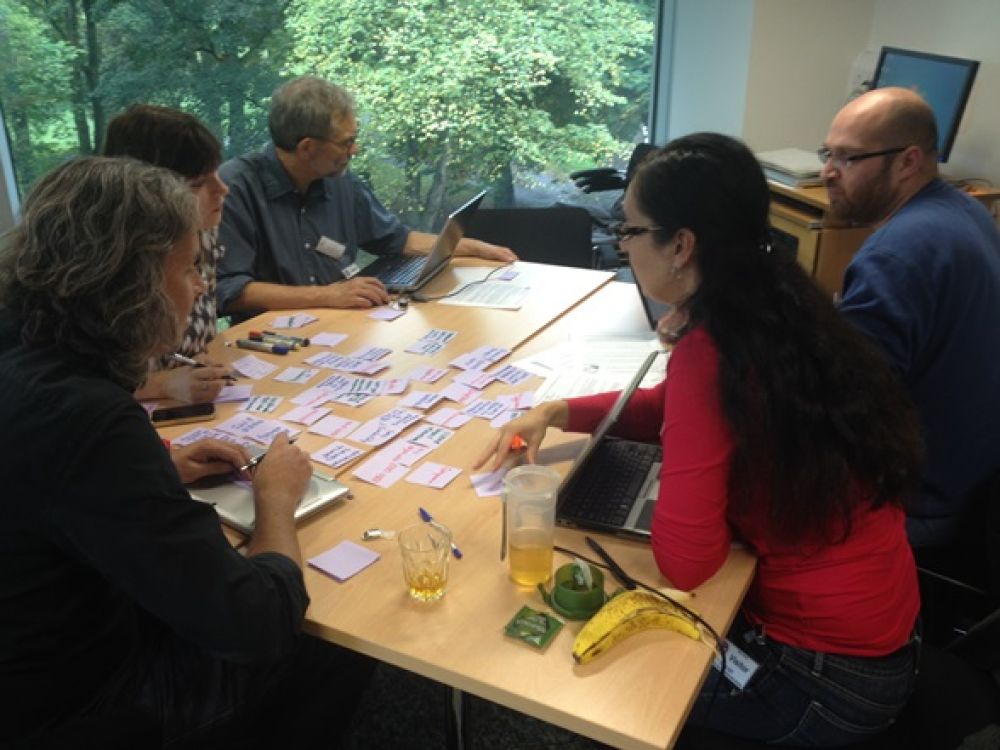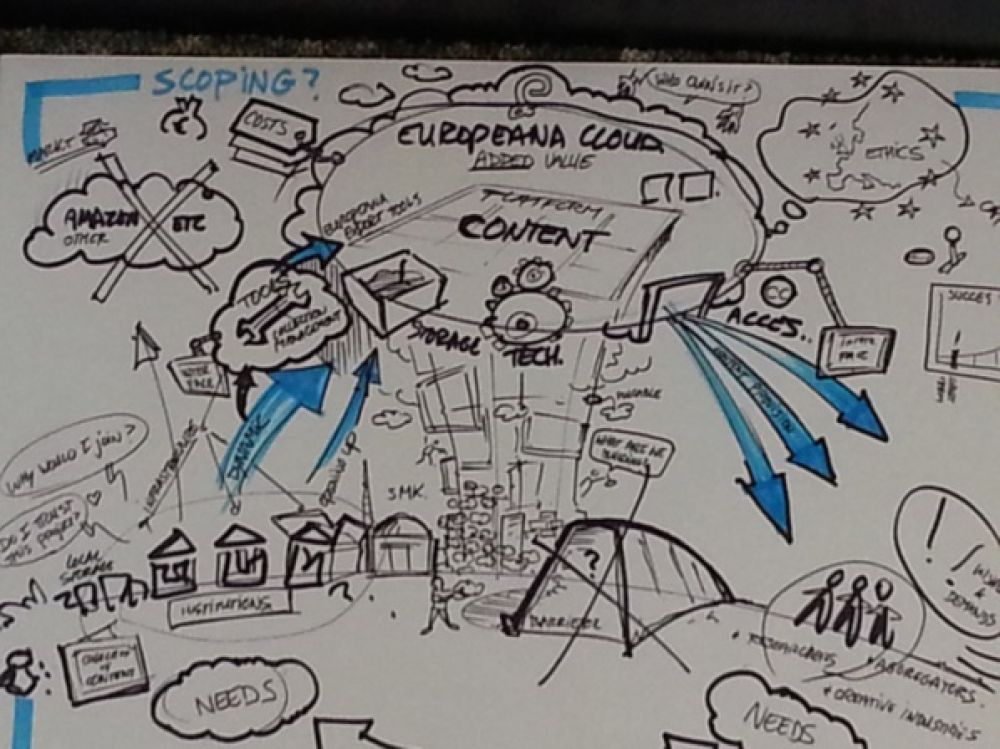Debating legal and economic requirements for Europeana Cloud

We recently told you about the outcomes of the workshop that explored the social principles of Europeana Cloud. Today, we are describing the discussions that took place during two consecutive workshops, hosted by the University of Edinburgh, that focused on establishing the legal and economic requirements of Europeana Cloud. The anticipated outcome of the workshops was to gain a better understanding of stakeholders' expectations and requirements, and as any discussion around Europeana Cloud proves, there was a lot to talk about!

'Edinburgh', Staats- und Universitätsbibliothek Bremen and EuropeanaLocal Deutschland, public domain.
Day 1: Key questions regarding the legal principles
Let’s start with the Legal Principles: we all understand that Europeana Cloud will need a set of rules, agreements and possibly a legal framework to manage and guide the interactions between stakeholders and the exchange of metadata, tools and services, but we don’t know exactly what is required. This is the main question we wanted the workshop participants to address - but finding the way to proceed is not as simple as asking the questions, collecting the answers and writing a set of agreements.
However, asking this key question is a good place to start, so we asked participants to identify the legal issues they anticipated Europeana Cloud would address. This raised questions such as who would be legally responsible for Europeana Cloud and how access to the metadata, tools and services would be managed.
How open should Europeana Cloud be?
In order to give the participants as much information as possible to refine their issues, we introduced two additional perspectives: Pavel Kats from Europeana, responsible for the development of the technical infrastructure described the current design and how it would enable relationships between stakeholders. Following this, Paul Keller from Kennisland, described the ongoing developments to the Europeana Licensing Framework, the introduction of the Content Re-Use Framework and the legislative requirements that will need to be considered.
These presentations activated a lively and elaborate debate about legal requirements and issues. One particular recurring point of debate was used as the basis of an exercise to describe the ideal scenarios which addressed how open should Europeana Cloud be, who should have access to the metadata, and who can use it and on what terms. Interestingly, these scenarios yielded very different results from the workshop participants with one clear point of common ground: all groups were in favour of Europeana Cloud enabling open access; the consensus was that compromises would need to be made.
These points of view, as well as a number of unanswered questions that were raised throughout the day were taken forward into the next workshops, which took a closer look at the economic benefits of participating in Europeana Cloud.

Day 2: The benefits of the future business model of Europeana Cloud
Led by our resident expert on business models, Harry Verwayen, the second day's workshop was all about identifying the opportunities Europeana Cloud represents. We introduced illustrator Herman Weeda into the day's proceedings, who helped us visualise the complex discussions by sketching the future cloud, its processes and issues. We also heard about the perspective of the Danish Museums from Merete Sanderhoff, Statens Museum, who are working towards a more open oriented business model.
The workshop took us through a series of discussions based on the four key benefit-based stakeholders priorities: lowering costs, increasing effectiveness, delivering efficiencies and improving dissemination. For example, one benefit was defined as ‘increasing find- and usability’ of metadata and content. The opportunity would be to create an easy to use and practical API for Europeana Cloud benefiting researchers, other end-users, and data providers as it would allow their metadata and content to be used more often.
Forming of the Strategic Task Force
As we navigated through the ranges of benefits we perceived, we also challenged participants to identify what they didn’t know about Europeana Cloud and its offerings. Looking at Herman's penultimate illustration of the mechanisms involved in delivering the tools and services of Europeana Cloud enabled a fuller debate of where the blurry parts of his picture were.

And so the first issues for the Europeana Cloud Strategic Task Force were formed. Composed of active and engaged members of the workshops, the Task Force is challenged to provide best case scenarios that help shape issues related to metadata and content, storage, access, value proposition and sustainability. This Task Force will run over the coming months, developing scenarios and contributing to the refinement of the set of requirements that result from this series of workshops.
The end result will be a defined, debated and refined set of requirements presented to the Europeana Cloud Plenary in February 2014. These requirements form the foundation of the governance and legal frameworks that will be developed as well as the business models designed to deliver the efficiencies and the sustainability promised by Europeana Cloud.

